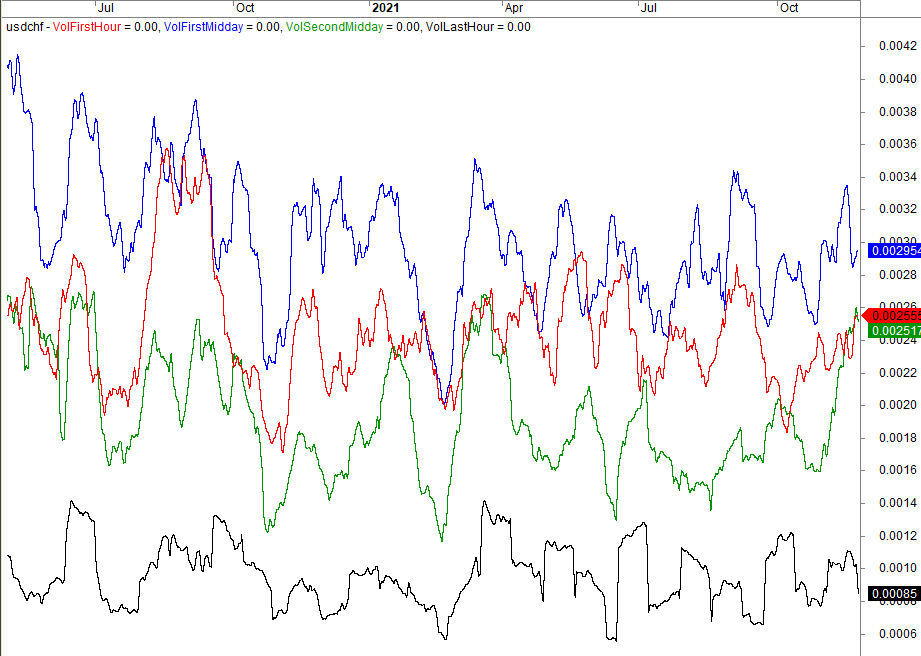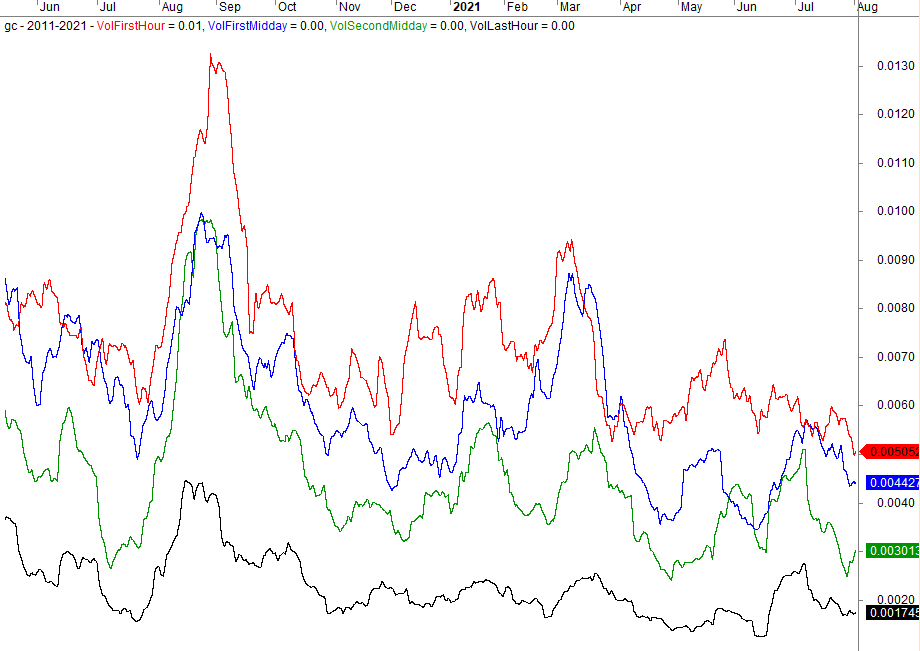What Time Of The Day Is The Most Volatile In Trading? (Stocks, Gold, Oil, And Swiss Franc)
What time of the day is the most volatile in trading? Most traders assume the first and last hour of trading (in any market) is the most volatile of the day. News from overnight trading needs to be discounted when the market opens, and during the last hour funds and traders rebalance their portfolios. Is it correct that the first and last hour is the most volatile of the day? In this article, we look at what time of the day is the most volatile in stocks, swiss franc, gold, and oil.
In stocks, the most volatile time of the day is on average the first hour. The least volatile time of the trading day is the last hour. In the other markets, the most volatile time of the day varies.
This is our free newsletter. For a list of the Bonus Articles we have for our Supporting Members, please press here.
Alternatively, you can test our subscription:
Let's explain how we backtested and came to our conclusions:
How do we test what time of the day is the most volatile in trading?
We divide the trading day into four parts:
The first hour of trading
First midday session - the next 2 hours
Second midday session - the next 2.5 hours
The last hour
We test the following four futures contracts (not ETFs):
The S&P 500
Swiss Franc
Gold
Oil
We chose these four because they are all pretty different from each other and have different attributes.
Both the S&P 500 and Swiss franc trades in Chicago and the two latter in New York. We use 0830 local time as open in Chicago and 0930 in New York, and 1500 local time as close in Chicago and 1600 in New York.
We use a 200-day moving average to smooth the curves. This means that the volatility results are based on the last 200 days and will move slightly up an down.
What is volatility?
Let's first define volatility. The money manager Fidelity defines volatility like this:
Volatility is the rate at which the price of a stock increases or decreases over a particular period.
The more the price fluctuates, the more volatile the asset is. Volatility is often seen as a measure of risk expressed as standard deviations. All of the financial theory is based on this assumption, but the evidence makes it clear that this is a faulty assumption. For example, over the last 50 years, the worst group of stocks has been the most volatile small-cap stocks. According to theory, this should not be the case, but nevertheless, that is what the backtests by Roger French reveal.
The legendary investor Warren Buffett has also said multiple times that volatility is a poor measure of risk. Quite the opposite, we should take advantage of volatility!
In our backtests, we measure the high and low per hour/session/time of day and divide by the opening price of the day.
What time of the day is the most volatile in stocks?
We use the S&P 500 as a proxy for the stock market and get the following volatility curves by using intraday data and Amibroker:
The underlines in the upper part of the chart explain the colors of the chart.
As you can see, the first hour (red line) is most of the time the most volatile time of the trading day. Perhaps surprisingly, the least volatile time of the day is the last hour (black line).
Keep in mind that the two midday sessions are longer and this might explain why they are (surprisingly?) volatile.
What time of the day is the most volatile in Swiss franc?
The Swiss franc behaves differently than the S&P 500:
The first midday session is the most volatile, while the last hour is, by far, the least volatile.
What time of the day is the most volatile in gold?
Let's switch to the gold contract which is heavily influenced by macro events:
In gold, the most volatile time of the day is the first hour, and the least volatile is the last hour. Keep in mind that we only measure regular trading hours and not the 23-hour trading session.
What time of the day is the most volatile in oil?
Our last test of the day is the oil futures contract:
As expected, the last hour is the least volatile, while the others seem pretty equal. The regular trading session in oil ends one hour before stocks, and it's expected that the oil price is hardly moving after it ends.
Keep in mind that we only measure regular trading hours and not the 23-hour trading session.
What time of the day is the most volatile in trading?
What time of the day is the most volatile in trading varies from market to market. In stocks, for example, perhaps the most followed market on the planet, we see that on average the first trading hour is the most volatile and the last hour the least volatile. However, in the Swiss Franc, it's the first midday session and not the first hour.
However, as usual, please do your own due diligence when you backtest.





